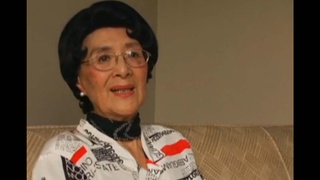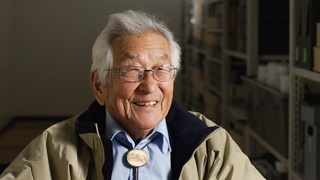Entrevistas
Working tirelessly after the war (Japanese)
(Japanese) After the war, when I started working for the Allied Occupation forces, my English was just terrible. I completely forgot it all. But after interacting—after talking with everyone, like the American G.I.s—I picked it back up fairly quickly. This word, that word… Honestly, looking back, I should’ve been studying harder at that time, but I was just frantically trying to [know enough to] get by. So when I was interpreting in Yokohama, I just said blah-blah-blah and got through it, and even after I entered the U.S. Army, you know… Even my education in Japan, I graduated junior high but never attended college. Now after moving to the states, I didn’t have a chance to attend an American college either, since I started working right away after the war. So I kind of regret leaving my education halfway, unfinished. Then again, I was able to raise my kids, and all of them made it all the way to college, so I was very happy about that.
Fecha: June 17, 2008
Zona: California, US
Entrevista: Yoko Nishimura
País: Watase Media Arts Center, Japanese American National Museum








